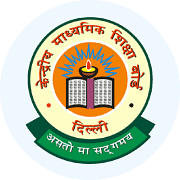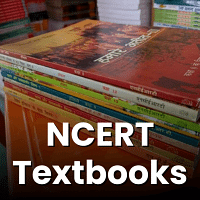CTET & State TET Exam > CTET & State TET Questions > Which of the following statement(s) is/are tr...
Start Learning for Free
Which of the following statement(s) is/are true for Direct Method of teaching languages?
A. Concrete vocabulary is taught through demonstration, objects and pictures.
B. Abstract vocabulary is taught by association of ideas.
A. Concrete vocabulary is taught through demonstration, objects and pictures.
B. Abstract vocabulary is taught by association of ideas.
- a)Only A is true.
- b)Only B is true.
- c)Both A and B are true.
- d)Neither A nor B is true.
Correct answer is option 'C'. Can you explain this answer?
| FREE This question is part of | Download PDF Attempt this Test |
Most Upvoted Answer
Which of the following statement(s) is/are true for Direct Method of t...
The Direct Method is a language teaching method that emphasizes the use of target language communication and immersion. It aims to develop oral proficiency and natural language use through direct interaction and contextual learning.
Attention CTET & State TET Students!
To make sure you are not studying endlessly, EduRev has designed CTET & State TET study material, with Structured Courses, Videos, & Test Series. Plus get personalized analysis, doubt solving and improvement plans to achieve a great score in CTET & State TET.

|
Explore Courses for CTET & State TET exam
|

|
Which of the following statement(s) is/are true for Direct Method of teaching languages?A. Concrete vocabulary is taught through demonstration, objects and pictures.B. Abstract vocabulary is taught by association of ideas.a)Only A is true.b)Only B is true.c)Both A and B are true.d)Neither A nor B is true.Correct answer is option 'C'. Can you explain this answer?
Question Description
Which of the following statement(s) is/are true for Direct Method of teaching languages?A. Concrete vocabulary is taught through demonstration, objects and pictures.B. Abstract vocabulary is taught by association of ideas.a)Only A is true.b)Only B is true.c)Both A and B are true.d)Neither A nor B is true.Correct answer is option 'C'. Can you explain this answer? for CTET & State TET 2024 is part of CTET & State TET preparation. The Question and answers have been prepared according to the CTET & State TET exam syllabus. Information about Which of the following statement(s) is/are true for Direct Method of teaching languages?A. Concrete vocabulary is taught through demonstration, objects and pictures.B. Abstract vocabulary is taught by association of ideas.a)Only A is true.b)Only B is true.c)Both A and B are true.d)Neither A nor B is true.Correct answer is option 'C'. Can you explain this answer? covers all topics & solutions for CTET & State TET 2024 Exam. Find important definitions, questions, meanings, examples, exercises and tests below for Which of the following statement(s) is/are true for Direct Method of teaching languages?A. Concrete vocabulary is taught through demonstration, objects and pictures.B. Abstract vocabulary is taught by association of ideas.a)Only A is true.b)Only B is true.c)Both A and B are true.d)Neither A nor B is true.Correct answer is option 'C'. Can you explain this answer?.
Which of the following statement(s) is/are true for Direct Method of teaching languages?A. Concrete vocabulary is taught through demonstration, objects and pictures.B. Abstract vocabulary is taught by association of ideas.a)Only A is true.b)Only B is true.c)Both A and B are true.d)Neither A nor B is true.Correct answer is option 'C'. Can you explain this answer? for CTET & State TET 2024 is part of CTET & State TET preparation. The Question and answers have been prepared according to the CTET & State TET exam syllabus. Information about Which of the following statement(s) is/are true for Direct Method of teaching languages?A. Concrete vocabulary is taught through demonstration, objects and pictures.B. Abstract vocabulary is taught by association of ideas.a)Only A is true.b)Only B is true.c)Both A and B are true.d)Neither A nor B is true.Correct answer is option 'C'. Can you explain this answer? covers all topics & solutions for CTET & State TET 2024 Exam. Find important definitions, questions, meanings, examples, exercises and tests below for Which of the following statement(s) is/are true for Direct Method of teaching languages?A. Concrete vocabulary is taught through demonstration, objects and pictures.B. Abstract vocabulary is taught by association of ideas.a)Only A is true.b)Only B is true.c)Both A and B are true.d)Neither A nor B is true.Correct answer is option 'C'. Can you explain this answer?.
Solutions for Which of the following statement(s) is/are true for Direct Method of teaching languages?A. Concrete vocabulary is taught through demonstration, objects and pictures.B. Abstract vocabulary is taught by association of ideas.a)Only A is true.b)Only B is true.c)Both A and B are true.d)Neither A nor B is true.Correct answer is option 'C'. Can you explain this answer? in English & in Hindi are available as part of our courses for CTET & State TET.
Download more important topics, notes, lectures and mock test series for CTET & State TET Exam by signing up for free.
Here you can find the meaning of Which of the following statement(s) is/are true for Direct Method of teaching languages?A. Concrete vocabulary is taught through demonstration, objects and pictures.B. Abstract vocabulary is taught by association of ideas.a)Only A is true.b)Only B is true.c)Both A and B are true.d)Neither A nor B is true.Correct answer is option 'C'. Can you explain this answer? defined & explained in the simplest way possible. Besides giving the explanation of
Which of the following statement(s) is/are true for Direct Method of teaching languages?A. Concrete vocabulary is taught through demonstration, objects and pictures.B. Abstract vocabulary is taught by association of ideas.a)Only A is true.b)Only B is true.c)Both A and B are true.d)Neither A nor B is true.Correct answer is option 'C'. Can you explain this answer?, a detailed solution for Which of the following statement(s) is/are true for Direct Method of teaching languages?A. Concrete vocabulary is taught through demonstration, objects and pictures.B. Abstract vocabulary is taught by association of ideas.a)Only A is true.b)Only B is true.c)Both A and B are true.d)Neither A nor B is true.Correct answer is option 'C'. Can you explain this answer? has been provided alongside types of Which of the following statement(s) is/are true for Direct Method of teaching languages?A. Concrete vocabulary is taught through demonstration, objects and pictures.B. Abstract vocabulary is taught by association of ideas.a)Only A is true.b)Only B is true.c)Both A and B are true.d)Neither A nor B is true.Correct answer is option 'C'. Can you explain this answer? theory, EduRev gives you an
ample number of questions to practice Which of the following statement(s) is/are true for Direct Method of teaching languages?A. Concrete vocabulary is taught through demonstration, objects and pictures.B. Abstract vocabulary is taught by association of ideas.a)Only A is true.b)Only B is true.c)Both A and B are true.d)Neither A nor B is true.Correct answer is option 'C'. Can you explain this answer? tests, examples and also practice CTET & State TET tests.

|
Explore Courses for CTET & State TET exam
|

|
Suggested Free Tests
Signup for Free!
Signup to see your scores go up within 7 days! Learn & Practice with 1000+ FREE Notes, Videos & Tests.






















